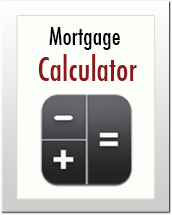Whether you’re considering remodelling worn-out surroundings, enlarging your home for a growing family or rebelling against yesterday’s standards, you have important investment choices to make. You’ll want to choose home improvements that not only pay off in recovery of the money you spend, but also help you get a better price for your home when and if you sell it. Keep in mind that, considering today’s market, it may be a smarter move to sell and buy again rather than endure a major construction project. After all, even an 80% recovery at resale is still a 20% loss.
Your Reasons for Home Improvement
The first piece of advice is never, ever try and renovate a part of your home, simply for the purpose of selling. You are incurring a huge risk here. The housing market can be volatile, and you never know which amenities are going to pay-off. If you renovate for yourself, you at least know you will get value simply by the enjoyment of the change. Your potential buyer may walk into the improved room, declare they don’t like it, and then change it immediately. They won’t care if you just sunk $30,000 into it. If you are looking to spruce up your home a little bit, before you sell, just make minor cosmetic changes, like painting. They are fast, inexpensive and there is little risk. If you know that you will be living in a home for some time, but you also know that in the future (perhaps when all of your children move out) you’ll be selling it. You should try and balance, which home improvements will pay-off the most, and which ones you would most like to enjoy. For instance, there is little point in renovating the basement, if you never go down there. It’s better just to leave it a blank slate for the next homeowner.
The following is a list projecting which home improvement initiatives often produce the best results upon resale value. Naturally these numbers are not rock solid. There are many factors including your local housing market and what kind of improvements you undertake.
- Kitchen Remodel (minor) – 125%
- Basement Remodel – 98%
- Bathroom Addition – 96%
- Kitchen Remodel (major) – 92%
- Bathroom Remodel – 90%
- Exterior Paint – 90%
- Master Bedroom – 86%
So, here you can see that home improvements to kitchens and bathrooms, pay excellent dividends. Not only that but they are often the most enjoyable changes for your everyday living.
Home Improvements with a Low Return:
Generally improvement of attics and basements yield a very low return, unless of course you do something radical. Then the risk is very high, but the return could be enormous. For instance, a tranquility tank is not going to appeal to many people, but if you find a buyer that is all about tranquility, you’ll make your money back, and more.
Use Good Judgment
When do these improvements you should also use your better judgment in taste. Take a look around your neighbourhood and see what kind of home improvements others have done. You’ll want your home to be consistent. Both for conformity, and also because certain improvements are popular with different people, and you’ll want to conducted them to match the pulse of your community. You should also keep the original design of your home in mind. Be sure to use similar materials and building styles. A hybrid home of new and old can look daring and artistic, but most homebuyers are very conservative (it is a huge investment) and they may not share your artistic vision. No bold colors, no flamboyant design. Just be tasteful and respectful, and you’ll be fine.
Your need comes first. So if you think that your will enjoy a bold flamboyant design go for it. Just try and limit the boldness and flamboyancy to the more cosmetic aspects of the home, i.e., furniture, paint, fixtures. Not windows and cabinets.
To really understand what home improvement is really going to pay-off, take a look at the following variables. They will give you a pretty good idea of what you should be considering when set out to do home improvements.
Kind of Improvement
As was mentioned before, kitchen and bathroom home improvements often yield the best pay back. And turning a basement into whatever yields the lowest.Scope of Improvement
Often with home improvement, the small changes often add up to more than the sum of their parts. The larger the scope of the home improvement, the more risk you will incur. That said, risk could turn into a high pay-off. You really have to know who your market is and what they are looking for. The following is a list of small changes you can make, which will make a huge difference:
- Upgrade or add ceiling fans
- Add new doors
- Fresh paint
- Garden Sanded and stained deck and fence
- Wallpaper
Fad = Bad
What is chic today can be the stifled snicker-inducing mistake of tomorrow. Take into account shifting social values. For instance, public space is rapidly dwindling. People, more and more, are looking for space where they can casually entertain. There are no more block parties, no more picnics in the park. Take this into account. Add a deck, it is the new standard for home ownership.Cost
Do not expect that if you put $20,000 into a renovation, you will automatically see $20,000 added to the value of your home. However, even if you only can recoup $10,000 of that, if you are there long enough you easily get $10,000 of use from a new kitchen. You should also think about doing as much of the home improving yourself as you can. Having a hands on approach will give you flexibility, and a new understanding of your home, that you can apply to other home improvement projects. It will also save you lots of cash.New Windows
Not a good resale investment at all. You can tell the buyer that you just added new windows, but that doesn’t really matter. Unless you can demonstrate a significant savings on your electricity and heating bill there is really no point. Therefore, replace windows if they need to be, but never just before you are selling your home.Creating New Space
Whether this means taking space that was poorly used before, or adding an addition, it can be a good idea. It is often important to look at design before functionality in this case. If you are improving your basement, don’t put in a bar. Instead leave the space open to interpretation. Leave it open, leave it clean. Like blank slate. The same can be said for studies, solariums and offices. Let the buyer decide.
To Help You Decide
Some clients are surprised to learn it may be easier to sell and buy again than to endure a major remodelling. Call for up-to-the-minute real estate market information to help you make your decision.


